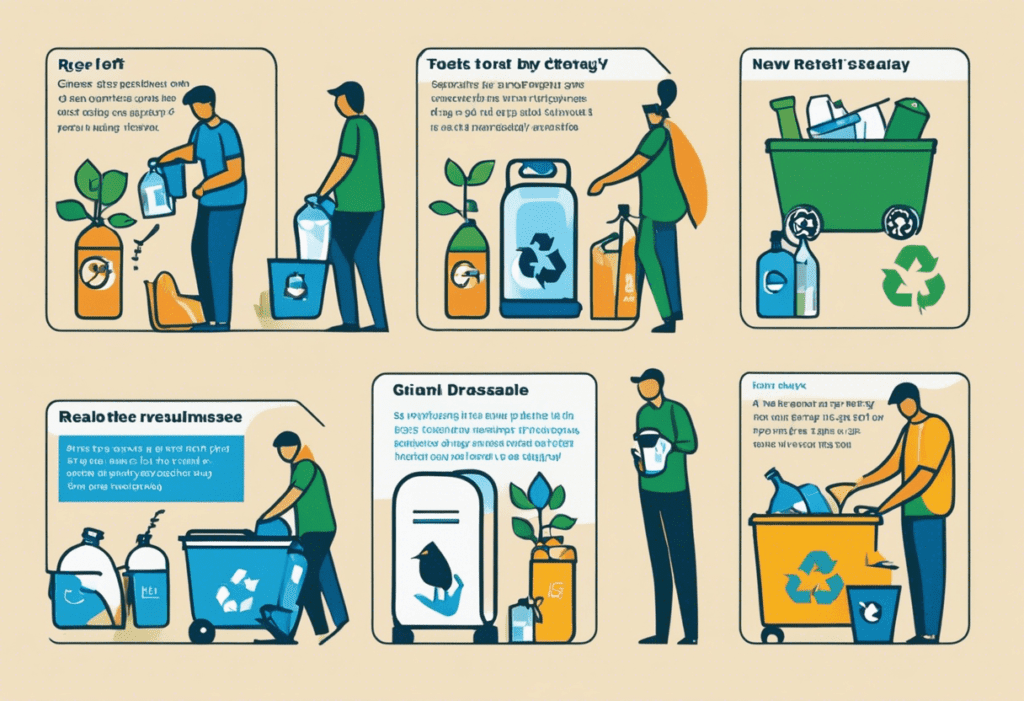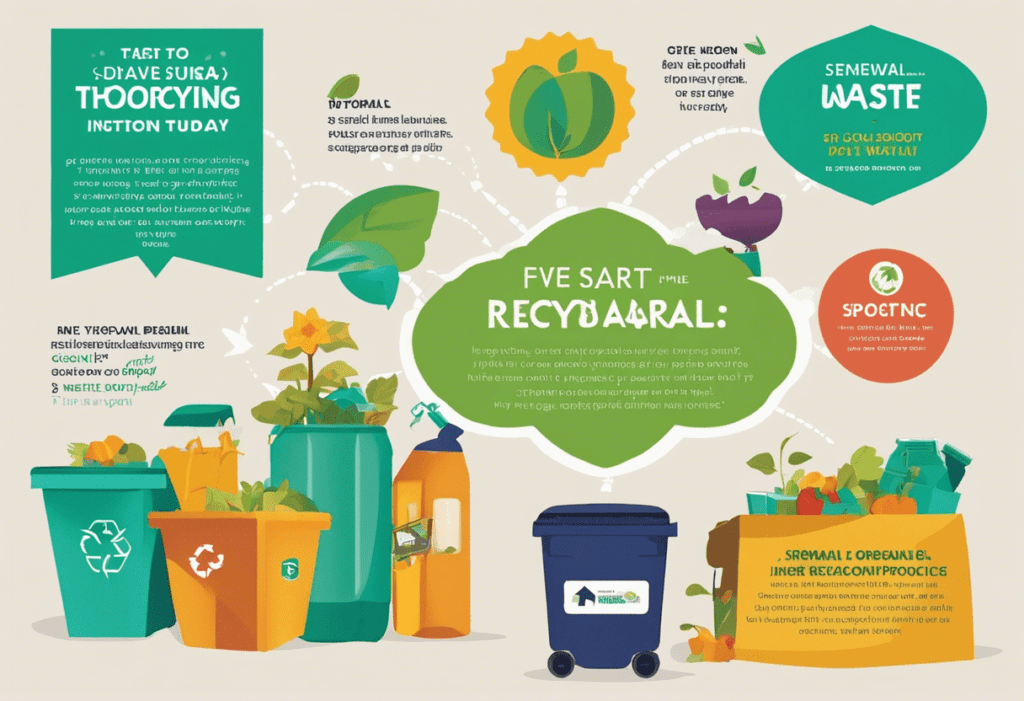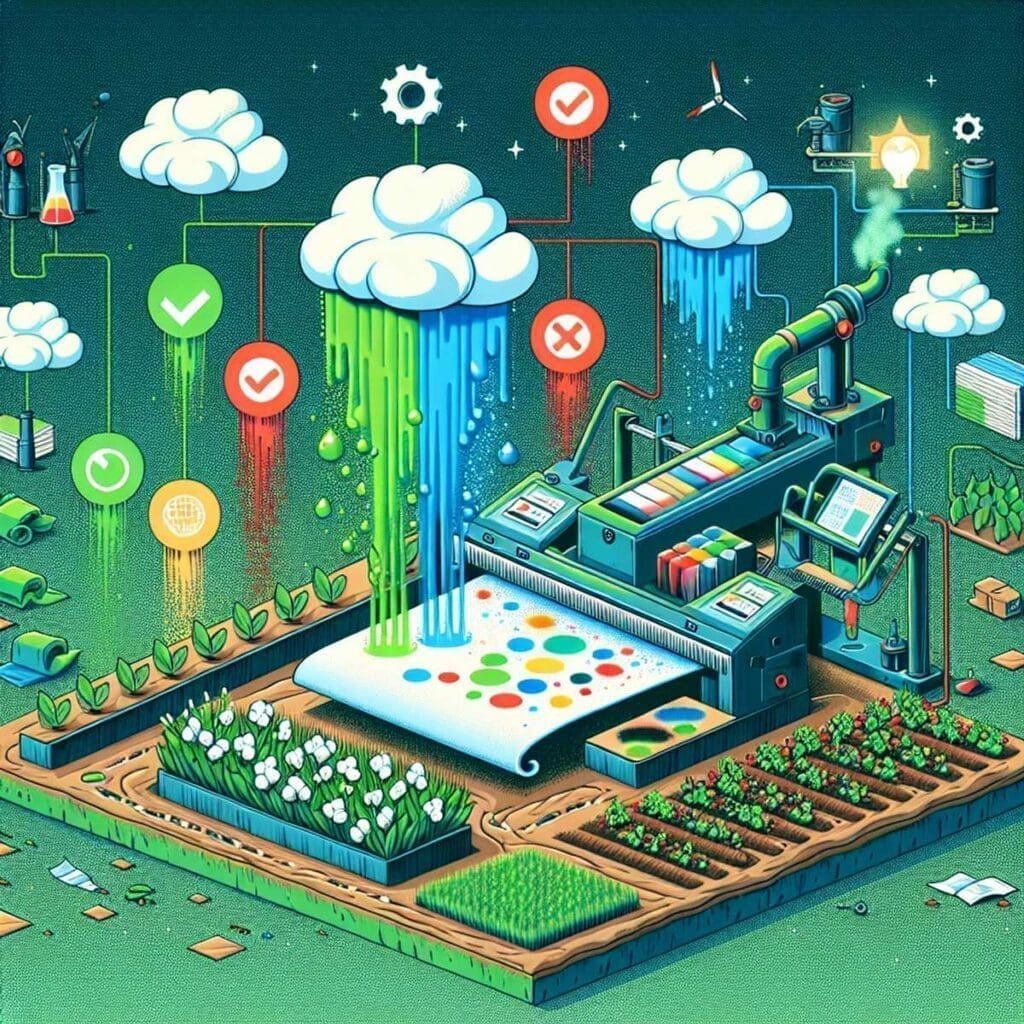
Understanding the Simple Ways to Start Recycling Today Importance of Recycling
Recycling is crucial for preserving the environment and conserving natural resources. By recycling, individuals can reduce waste sent to landfills, decrease pollution, and save energy. Understanding why recycling is essential can motivate people to make a difference through simple daily actions.
- Conserving Natural Resources: Recycling helps in the conservation of valuable raw materials such as paper, plastic, glass, and metals. By reusing these materials, less energy is required for extracting, processing, and manufacturing new products. This conservation of resources contributes to sustainability and minimizes the depletion of natural reserves.
- Reducing Landfill Waste: Recycling diverts waste from landfills, reducing the space needed for disposal and mitigating environmental hazards. Landfills produce methane gas, a potent greenhouse gas that contributes to climate change. By recycling, individuals can minimize the amount of waste that ends up in landfills, thereby reducing greenhouse gas emissions.
- Saving Energy: Producing new products from recycled materials generally requires less energy compared to manufacturing items from raw materials. Energy conservation is vital in reducing carbon emissions and combating climate change. Recycling helps conserve energy resources and contributes to a more sustainable future.
- Protecting Wildlife: Improper disposal of waste, especially plastic, can harm wildlife through ingestion or entanglement. Recycling can help prevent litter from ending up in natural habitats, safeguarding wildlife and preserving ecosystems. By recycling, individuals can contribute to protecting the environment and wildlife.
Understanding the importance of recycling is the first step towards making a positive impact on the planet. By incorporating recycling into daily routines, individuals can play a significant role in environmental conservation and sustainability.
Identifying Recyclable Materials in Your Household

When initiating a recycling routine at home, it is crucial to first identify the recyclable materials available in your household. Here are some common items that can typically be recycled:
- Paper Products
- Newspapers
- Magazines
- Cardboard boxes
- Office paper
- Plastic Containers
- Water bottles
- Food containers
- Milk jugs
- Shampoo bottles
- Glass Containers
- Jars
- Bottles
- Metal Cans
- Aluminum cans
- Steel cans
When sorting through your household waste, remember to look for these materials that can be recycled. Keep in mind that items like plastic bags, styrofoam, and light bulbs usually cannot be recycled in regular curbside programs. It’s essential to check with your local recycling facility or waste management company to clarify specific guidelines in your area.
Moreover, certain items may require special procedures for recycling, such as electronics, batteries, and hazardous materials. Always handle these items with care and inquire about proper disposal methods.
As you become more familiar with what can and cannot be recycled, consider creating designated bins or areas in your home to separate recyclable materials from general waste. This simple step can significantly streamline the recycling process and encourage sustainable habits among household members.
Stay informed about recycling practices by staying updated on local recycling regulations and guidelines. By making a conscious effort to identify recyclable materials in your household, you are taking a significant stride towards reducing waste and conserving valuable resources.
Setting Up a Recycling Station at Home

Setting up a recycling station at home is a crucial step towards sustainable waste management. Here are some simple tips to help you establish an efficient recycling system:
- Designate a Spot: Choose a convenient and accessible location in your home for the recycling station. It could be a corner of the kitchen, a pantry, or even a space in the garage.
- Separate Containers: Use different bins or containers to separate various recyclable materials such as paper, plastic, glass, and metal. Labeling the containers can help you and your family members easily identify where each item belongs.
- Educate Your Household: Ensure that everyone in the household knows what can and cannot be recycled. Provide clear guidelines and information on recycling practices to encourage active participation.
- Compress and Organize: To maximize space and efficiency, consider compacting items like plastic bottles and flattening cardboard boxes before placing them in the recycling bins.
- Regular Maintenance: Make it a habit to empty the recycling bins regularly and take the recyclables to the designated collection point. This will prevent overflow and keep your recycling station tidy.
By following these simple steps, you can create a well-organized recycling station at home that makes it easy for everyone to contribute to environmental conservation efforts.
Incorporating Recycling into Your Daily Routine
When looking to make a positive impact on the environment, integrating recycling into your daily routine is a simple yet effective way to contribute. Here are some practical tips on how to effortlessly incorporate recycling into your everyday life:
- Set up a recycling station: Designate an area in your home for recyclables such as paper, plastic, glass, and metal. Having a dedicated space will make it easier to sort and dispose of items properly.
- Use reusable bags: When shopping, bring your own reusable bags to reduce the need for single-use plastics. Keep a few in your car or by the front door so you never forget them.
- Recycle on the go: Whether you’re at work, school, or out running errands, make use of recycling bins whenever you can. Look for recycling options in public places to dispose of items responsibly.
- Educate yourself: Stay informed about what items can be recycled in your area. Different regions have varying recycling guidelines, so knowing what can and cannot be recycled will help you make better choices.
- Encourage others: Spread awareness about the importance of recycling to friends, family, and coworkers. Lead by example and inspire others to join in your efforts to reduce waste and protect the environment.
By incorporating these simple strategies into your daily routine, you can make a significant difference in reducing waste and promoting a sustainable lifestyle. Remember, every small action counts towards a cleaner, greener future for our planet.
Getting Involved in Community Recycling Programs
Community recycling programs play a vital role in promoting sustainability and reducing waste. Here are some simple ways individuals can get involved:
- Contact Local Authorities: Reach out to local municipalities or waste management departments to inquire about existing recycling programs. They can provide information on what materials are accepted and how to properly sort and dispose of them.
- Participate in Curbside Recycling: Many communities offer curbside recycling pickup services. Residents can separate recyclables from regular waste and leave them out for collection on designated days. This convenient option makes recycling easy and accessible for households.
- Attend Recycling Events: Keep an eye out for recycling events hosted by local organizations or environmental groups. These events may include electronics recycling drives, paper shredding services, or household hazardous waste disposal opportunities.
- Join Community Clean-Up Efforts: Participating in community clean-up events not only helps beautify neighborhoods but also prevents waste from ending up in landfills or natural habitats. These efforts often involve recycling materials like plastics, glass, and metal found during clean-up activities.
- Educate Others: Spread awareness about the importance of recycling in your community. Share information about the benefits of recycling, how to properly recycle different materials, and the environmental impact of waste accumulation. Encouraging others to join recycling initiatives can amplify the positive effects of communal recycling programs.
By actively participating in community recycling programs, individuals can contribute to environmental conservation efforts and promote a sustainable future for all.
Tips for Encouraging Others to Recycle

- Lead by Example: Be a role model by consistently recycling yourself. Show others how easy and beneficial it is to recycle by making it a part of your daily routine.
- Educate Others: Raise awareness about the importance of recycling and the positive impact it has on the environment. Share facts and statistics to highlight the benefits of recycling.
- Provide Resources: Offer guidance on how to recycle properly, including information on what items can be recycled and where recycling facilities are located. Make it easy for others to participate.
- Organize Community Events: Host recycling drives or clean-up events to bring people together and promote recycling in a fun and engaging way. Encourage friends, family, and neighbors to join in.
- Incentivize Recycling: Create incentives for recycling, such as reward programs or competitions. Offer prizes or recognition to individuals or groups who show a commitment to recycling.
By implementing these tips, you can inspire and motivate others to start recycling and make a positive impact on the environment.
The Environmental Impact of Recycling
Recycling plays a crucial role in reducing the negative impact of waste on the environment. Here are some key points showcasing the environmental benefits of recycling:
- Conservation of Natural Resources: When materials like paper, glass, and metal are recycled, it reduces the need for extracting and processing raw materials. This helps in conserving natural resources like trees, minerals, and water, which are essential for the ecosystem.
- Energy Conservation: Recycling requires less energy compared to producing new items from raw materials. For example, recycling aluminum saves up to 95% of the energy needed to produce aluminum from raw materials. This reduced energy consumption leads to lower carbon emissions and helps in combating climate change.
- Reduction in Landfill Waste: By recycling materials instead of throwing them away, the amount of waste sent to landfills decreases. This not only helps in conserving landfill space but also reduces the release of harmful chemicals and gases into the environment from decomposing waste.
- Reduction of Pollution: The manufacturing of new products from raw materials often leads to the release of pollutants and greenhouse gases into the air, water, and soil. Recycling helps in lowering these emissions, thereby mitigating pollution and its adverse effects on the environment and human health.
- Protection of Wildlife: Improper disposal of waste can harm wildlife through contamination of their habitats. Recycling reduces the amount of waste that ends up in natural ecosystems, safeguarding the health and well-being of wildlife populations.
Recycling is a simple yet powerful way for individuals to contribute to environmental preservation and sustainability. By understanding the environmental impact of recycling, individuals can make more informed choices to protect the planet for future generations.
Debunking Common Recycling Myths
- Recycling Myth 1: “It’s better to toss everything in the trash than to recycle.”
- Fact: Recycling helps to conserve natural resources, reduce waste in landfills, and lower greenhouse gas emissions. Recycling is a crucial step towards sustainable living.
- Recycling Myth 2: “All recyclables end up in the landfill anyway.”
- Fact: While some materials may unfortunately end up in landfills due to contamination or improper sorting, recycling facilities strive to ensure that as much recyclable waste as possible is properly processed.
- Recycling Myth 3: “It’s not worth recycling because only a small percentage of recycled materials actually get reused.”
- Fact: Recycling plays a vital role in the circular economy. Even if only a portion of recycled materials gets reused directly, the rest may be repurposed into new products or materials, contributing to a more sustainable future.
- Recycling Myth 4: “Recycling is too complicated and time-consuming.”
- Fact: Recycling can be simple and convenient. Setting up separate bins for different types of recyclables, such as paper, plastic, glass, and metal, can help streamline the process and make it easier to recycle regularly.
- Recycling Myth 5: “It doesn’t matter if I recycle a little bit; it won’t make a difference.”
- Fact: Every individual effort counts when it comes to recycling. Cumulatively, small actions add up to significant positive impacts on the environment and natural resources.
Innovative Ways to Upcycle and Reuse
- Creative Container Recycling:
- Utilize old jars and containers for storage of various items like spices, stationery, or leftovers.
- Repurpose Clothing:
- Turn old clothes into cleaning rags or DIY projects such as tote bags or pillow covers.
- DIY Upcycled Crafts:
- Transform items like tin cans into planters, glass bottles into home decor, or pallets into furniture.
- Electronics Reuse:
- Donate old electronics for refurbishment or repurpose them for new uses at home.
- Composting:
- Use food scraps and yard waste to create nutrient-rich compost for gardening.
Measuring and Celebrating Your Recycling Progress
Measuring your recycling progress is an essential step towards understanding the impact of your efforts. Here are some simple ways to track and celebrate your achievements:
- Keep a Recycling Log: Consider creating a log where you record the amount and types of materials you recycle regularly. This can help you see patterns, set goals, and stay motivated.
- Use Recycling Apps: There are various apps available that can help you track your recycling activities. These apps often provide tips, statistics, and challenges to keep you engaged.
- Set Achievable Goals: Start with small, achievable goals such as increasing your recycling rate by a certain percentage or committing to recycling specific items. Celebrate each milestone to stay motivated.
- Educate Yourself: Learn about the environmental impact of recycling and how your actions contribute to sustainability. The more informed you are, the more connected you’ll feel to the cause.
- Share Your Success: Don’t be afraid to share your progress with friends and family. Celebrate your achievements together, and inspire others to join you in your recycling journey.
By measuring and celebrating your recycling progress, you not only track your impact on the environment but also stay motivated and inspired to continue making a difference. Remember, every small step counts towards creating a more sustainable future.






